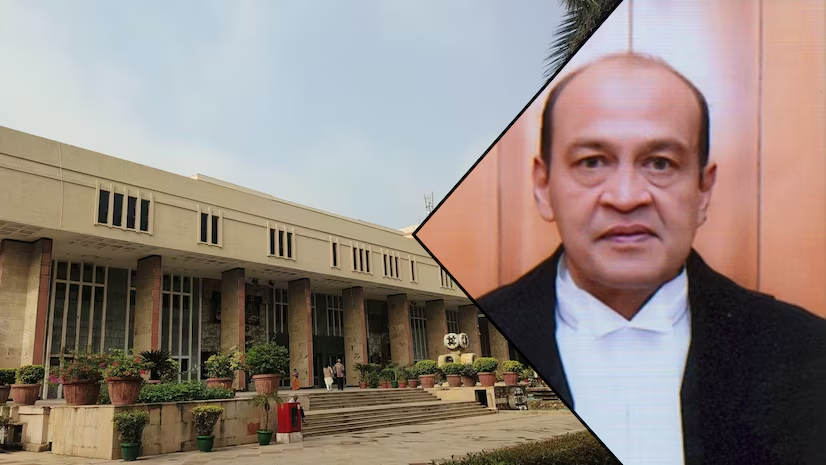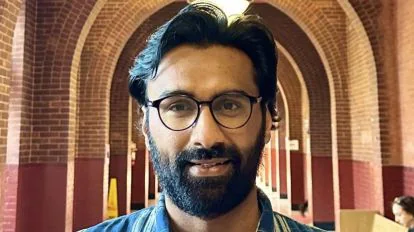
Justice Yashwant Varma: 5 Shocking Facts About the Fire and Cash Recovery Scandal
March 19, 2025 — A major controversy has erupted in the Indian judicial system after a fire at the official residence of Justice Yashwant Varma, a sitting judge at the Delhi High Court, led to the discovery of a large sum of cash. The incident has triggered an official investigation and raised questions about judicial accountability and the source of the recovered money.
Who is Justice Yashwant Varma?
Justice Yashwant Varma is a prominent figure in the Indian judiciary, known for his expertise in civil, constitutional, and corporate law. Born on January 6, 1969, in Allahabad, Uttar Pradesh, Justice Varma built a distinguished career that saw him rise through the ranks of the legal system. He has handled numerous high-profile cases and delivered significant judgments during his tenure at the Allahabad and Delhi High Courts.
Justice Varma’s educational background includes a Bachelor of Commerce (Honours) degree from Hansraj College, Delhi University, followed by an LLB from Rewa University in Madhya Pradesh. He enrolled as an advocate on August 8, 1992, and began practicing at the Allahabad High Court, specializing in civil and constitutional matters.
Justice Yashwant Varma’s Legal Career and Achievements
Justice Yashwant Varma’s career trajectory reflects his deep commitment to the legal profession. After years of private practice, he was appointed as the Special Counsel for the Allahabad High Court in 2006. In 2012, he became the Chief Standing Counsel for the State of Uttar Pradesh, representing the state in complex legal matters.
His judicial career began when he was appointed as an Additional Judge of the Allahabad High Court on October 13, 2014. His appointment was made permanent on February 1, 2016. In October 2021, Justice Varma was transferred to the Delhi High Court, where he quickly became known for his fair and decisive rulings on matters of constitutional law, corporate disputes, and intellectual property.
Justice Varma gained recognition for his judgments related to the Prevention of Money Laundering Act (PMLA), where he addressed the enforcement agencies’ powers concerning provisional attachment of properties. His rulings have often been cited as key precedents in corporate and financial law. (Read more about PMLA on SCC Online – DoFollow Link).
Fire at Justice Yashwant Varma’s Bungalow: What Happened?
On the evening of March 19, 2025, a fire broke out at the official residence of Justice Yashwant Varma in New Delhi. Emergency services were called to the scene immediately, and firefighters managed to contain the blaze without any casualties. However, during the firefighting operation, authorities discovered a massive cache of cash concealed within the residence.
While the exact amount has not been officially disclosed, initial reports suggest that the sum could be in the crores (millions). The discovery of such a large quantity of cash in the possession of a sitting high court judge has triggered a political and legal storm, prompting immediate scrutiny from judicial authorities and anti-corruption bodies. (Read the full report on MoneyControl – DoFollow Link).
Discovery of Cash Raises Serious Questions
The discovery of cash at Justice Yashwant Varma’s residence has led to intense speculation about its origin and purpose. The Enforcement Directorate (ED) and the Central Bureau of Investigation (CBI) have launched parallel investigations to trace the source of the funds and determine whether they are linked to any illegal activities or financial mismanagement.
Legal experts have raised concerns about potential conflicts of interest and ethical breaches. Under Indian law, sitting judges are prohibited from engaging in financial transactions that could compromise their independence and impartiality. If proven to be involved in illicit financial activities, Justice Varma could face disciplinary action, including removal from office.
Response from the Judiciary and Political Circles
The Supreme Court collegium responded swiftly to the incident by recommending the transfer of Justice Yashwant Varma back to the Allahabad High Court. This decision was met with resistance from the Allahabad High Court Bar Association, which objected to the transfer, calling it an attempt to deflect accountability rather than addressing the core issue.
“The Allahabad High Court is not a dumping ground for troubled judges,” said a senior member of the Bar Association. “Justice Varma should face an independent inquiry, and the findings should be made public.” (Read more on The Hindu – DoFollow Link).
Justice Yashwant Varma’s Defense and Public Statement
Justice Varma has maintained his innocence, stating that he had no knowledge of the cash found at his residence. In a written statement to the Delhi High Court’s administrative panel, he claimed that the money might have been planted by unidentified individuals to malign his reputation.
“I have always upheld the highest standards of integrity and transparency in my career,” Justice Varma wrote. “I am confident that the investigation will reveal the truth and vindicate me.”
Public and Media Reaction
The incident has drawn significant media attention, with leading newspapers and television networks closely following developments. Social media platforms have been flooded with reactions, with many calling for greater accountability and transparency in judicial appointments and conduct.
Legal and Ethical Implications
The case involving Justice Yashwant Varma highlights broader issues concerning judicial accountability and ethical standards. Under the Judges (Inquiry) Act, 1968, a sitting judge can be impeached for proven misbehavior or incapacity. However, the process is complex and requires a two-thirds majority in both Houses of Parliament. (Learn about the Judges (Inquiry) Act on India Code – DoFollow Link).
International Perspective on Judicial Accountability
The discovery of cash at Justice Yashwant Varma’s residence has also attracted attention from international legal bodies. The International Bar Association (IBA) has issued a statement urging the Indian government to ensure a transparent and impartial investigation.
“Judicial independence is fundamental to the rule of law,” said IBA President Sternford Moyo. “Allegations of financial misconduct involving sitting judges must be addressed with the highest level of integrity and transparency.” (Visit International Bar Association – DoFollow Link).


